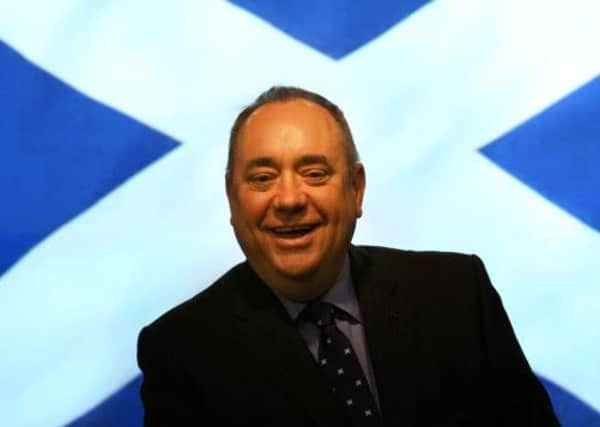George Osborne: Scots must count cost of breaking the union


As decisions go, they don’t come much bigger. This isn’t a decision for the UK Government or me to take. It’s a choice for people living in Scotland.
The UK Government has now published an in-depth economic paper; the first of a series about the economic implications of Scottish independence.
Advertisement
Hide AdAdvertisement
Hide AdPrepared by Treasury civil servants, their analysis shows that the current arrangements of a full, monetary, fiscal and political union bring economic benefits to all parts of the UK.
Breaking up that union would represent a fundamental change, and confront an independent Scottish state with difficult choices about what to put in its place.
We trade together – Scotland exports to the rest of the UK nearly a third of everything it produces.
We do business together – nearly one in five private sector jobs in Scotland is for business based elsewhere in the UK.
Advertisement
Hide AdAdvertisement
Hide AdWe work together – each year over 40,000 people move across the border in each direction to live and work.
It’s not surprising then that Scotland’s economy is so closely aligned with the rest of the UK and its interests so inextricably linked.
So the analysis makes clear the value of being able to fully co-ordinate our monetary, fiscal, and financial stability policies.
As the Scottish Government’s own Fiscal Commission puts it: “Retaining a common currency would promote the single market and help facilitate trade and investment to and from the rest of the UK and elsewhere.”
Advertisement
Hide AdAdvertisement
Hide AdAnd the Commission is right on this point. Who would conclude the answer to today’s economic and financial challenges is to:
erect barriers between you and your most important trading partner;
accept a premium on the cost of borrowing when money is tight;
conduct your business in two different currencies, across fluctuating exchange rates, when currently you don’t have to – with all the additional costs involved?
Advertisement
Hide AdAdvertisement
Hide AdThe Treasury paper identifies four potential alternative models from which a separate Scottish state could pick its currency and monetary arrangements. All are a profound change from the pound we have today.
Scottish Government Ministers have made it clear they want an independent Scotland to keep the pound, the Bank of England and to enter a formal currency union with the rest of the UK.
The Treasury paper cautions that a formal currency union between two completely separate countries is not the same thing as keeping the pound we have now.
Financial markets would need to be convinced such a union was built to last. A durable currency union between two separate countries requires very strong and credible political commitment. The very opposite of what the SNP is proposing with its determination to break the political ties with the rest of the UK.
Advertisement
Hide AdAdvertisement
Hide AdBut the lesson from the euro is stark – monetary union without close fiscal and political integration is extremely hard to sustain.
That’s why the Euro area is having to reform its institutions, as the original measures to maintain budgetary discipline of its member states proved inadequate.
Countries with the euro now have to submit their budget plans to Brussels alongside their own national parliaments and face the prospect of sanctions if they run excessive deficits.
And that’s not all. You only have to look at the problems facing smaller members of the euro area such as Portugal, Ireland and Greece. The challenges for establishing a formal currency union between Scotland and the remaining UK are not hard to imagine.
Advertisement
Hide AdAdvertisement
Hide AdThe political commitment to maintaining the currency union would be tested daily in the financial markets.
As Professor John Kay – formerly a member of the Scottish Government’s Council of Economic Advisers – has put it: “It is easy to see why the rest of the UK, representing 91.5 per cent of a monetary union, might seek oversight of the economic affairs of Scotland, representing 8.5 per cent of the same union.
“It is more difficult to see why the rest of the UK representing 91.5 per cent of a monetary union should concede oversight of its policies to Scotland, representing 8.5 per cent of the union.”
The fundamental political question this analysis provokes is this. Why would 58 million citizens give away some of their sovereignty over monetary and potentially other economic policies to five million people in another state?
As such, the conclusion is clear. The pound we share works well. The saying goes “If it ain’t broke why fix it?” But I say “if it ain’t broke don’t break it.”